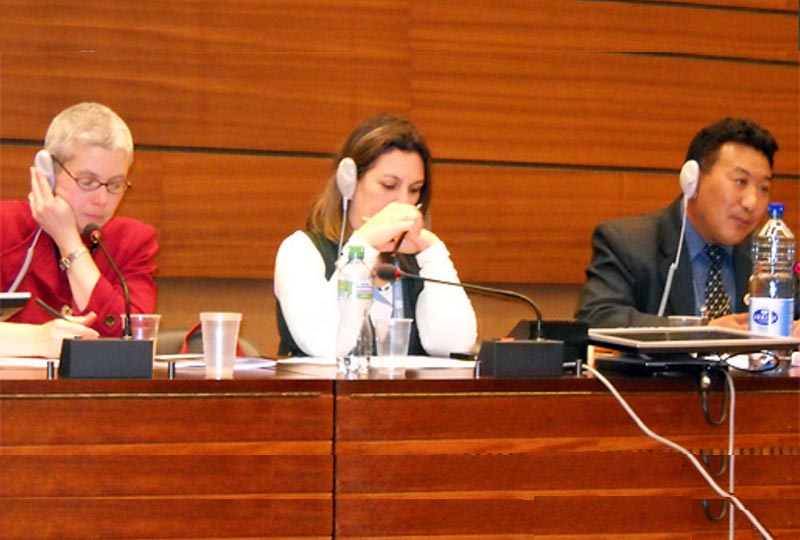 Geneva: - "There is no improvement of human rights in Tibet," said Mr. Jampa Monlam former political prisoner and assistant Director, Tibetan Centre for Human Rights and Democracy based in Dharamsala, India. gave a testimony on the human rights situation in Tibet on 9th March at a briefing organised by Human Right Watch on the human rights situation in China.
Geneva: - "There is no improvement of human rights in Tibet," said Mr. Jampa Monlam former political prisoner and assistant Director, Tibetan Centre for Human Rights and Democracy based in Dharamsala, India. gave a testimony on the human rights situation in Tibet on 9th March at a briefing organised by Human Right Watch on the human rights situation in China.
The briefing took place during the UN Human Rights Council Session in Geneva. The other key speaker was Ms. Sophie Richardson, Advocacy Director Asia Division of Human Rights Watch. Ms. Richardson said China continues to violate the basic human rights. She said that top of the list was disappearance - denying individuals being held by security forces.
The Asian Advocacy Director of Human Rights Watch said that the mass arrest that followed after the 2008 uprising in Tibet by the Chinese security forces had gone un-noticed. The Chinese authorities showed profound disrespect for Tibetans way of life.
Mr. Monlam said he was speaking as a former political prisoner who was tortured during five years and six months imprisonment. He was first arrested in 1987 and on two other occasions for taking part in demonstrations in Lhasa.
"To maintain stability, the Chinese authorities in Tibet are using every means of force to create stability," he said. "In the monasteries, there is no religious freedom."
Mr. Monlam said that while the Chinese prisoners are allowed to hire lawyers, the same right is denied to Tibetans. He said this shows nationality discrimination. Also while the Chinese people are allowed to listen to Radio Free Asia, Tibetans in Tibet are forbidden.
There are over 500 Tibetans missing and 831 known political prisoners in Tibet today. "We are not against the Chinese government or people but want the world to know the true situation in Tibet. I have spent half of my life in Tibet," he said.
About 50 people including representatives from 18 Foreign Missions to the UN attended the briefing. In July 2010 Human Rights Watch released "I saw it with my own eyes: Abuses by Chinese security forces in Tibet, 2008 -2010" report. It documented that subsequent crackdown that followed after the 2008 uprising across Tibet. The report was based on more than 200 interviews with Tibetan refugees and visitors conducted immediately after they left China.
The report details through eyewitness testimonies, a broad range of abuses committed by security forces both during and after protest incidents, including using disproportionate force in breaking up protests, proceeding to large-scale arbitrary arrests, brutalizing detainees, and torturing suspects in custody.
The report decisively refutes the Chinese government's claim that it handled the protests in line with international standards and domestic laws. The report details the Chinese government's own sources - the official willingness to use lethal force against unarmed protestors.


![Tibet has a rich history as a sovereign nation until the 1950s when it was invaded by China. [Photo: File]](/images/stories/Pics-2024/March/Tibet-Nation-1940s.jpg#joomlaImage://local-images/stories/Pics-2024/March/Tibet-Nation-1940s.jpg?width=1489&height=878)















